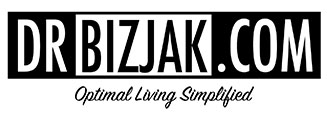There are some who will not believe, change, or try something without absolute proof. There must be clinical trials, advanced research, and documented proof before accepting something as being true. They want “the science.”
Then, there are those who rely on common sense, personal experience, and what is called anecdotal evidence. Their beliefs and actions are supported by what they have seen, read, heard, or experienced, whether supported by data or not.
As with anything, there are those who function on the extreme ends of either side. And as with anyone who functions on the extreme end of anything, they miss out on a lot of truths, and often suffer because of it.
I am a huge fan of the scientific method. I love to see data, detailed analysis, and research. Solid evidence allows me to proceed with confidence and certainty. I read studies, look at charts and graphs, analyze study parameters, and keep up on the latest scientific research. I do this because I am a physician, and many patients put their trust and faith in me, and I believe it helps me to be a better educated, up-to-date, and more successful practitioner.
I am also a huge fan of anecdotal evidence, which is defined as “evidence in the form of stories that people tell about what has happened to them.” It may not be provable, we may not know what is happening at the cellular level, and we may have no explanation of why things have happened the way they did. For me, this is not just okay, but an essential component of not only providing the best care for my patients, but also for me to live my own best life possible.
This might be surprising to some people. Some may think it’s careless, reckless, or even unacceptable. But let me explain…
The human body, nature, and life itself are extremely complex. There are 100 trillion cells in the human body, there 100 to 400 billion stars within our galaxy, and humans make up just 0.01% of Earth’s life. To think that we can understand, be able to scientifically explain and comprehend all there is to know is ridiculous. If we rely solely on so-called science before doing, trying, or believing, we are doomed.
There is even a good argument that can be made that our health has declined so much over the past 50 years because we have put too much of it in the hands of scientists. What do I mean by that? Well… over the past 50 years, our rates of chronic illness have skyrocketed. Roughly 80% of all adults suffer with a chronic illness. Roughly 50% suffer with two or more. Compare that with indigenous tribes, who share the same genes as us, have no research, labs, or scientists, and have virtually no understanding of the chemical processes that occur within the body. These folks have very little, if any, obesity, diabetes, depression, heart disease, and even cancers. Some might think of them as primitive, ignorant, and even savages, yet they are living healthier lives in terms of chronic illness than we are.
We now also know that the published research that doctors and scientists so heavily rely on, refer to, and put all their faith in, is often flawed. We saw this during the pandemic, but it has been going on for decades. Companies often construct studies in ways that the end result supports their much-needed conclusion. There are conflicts of interest, study design flaws, and outright fraud. For more information on that, you can simply Google “how many published scientific studies are false.”
Combine this with all of the things we have believed to be true, that were supported by science, promoted by doctors and scientists, and backed by clinical, published research, yet now are known to be false. Drugs that were known to be effective and safe… only to find out they were not effective and even caused death. Certain medical procedures that were deemed as breakthroughs and revolutionary, only to find out that they were ineffective and dangerous (iron lung, bloodletting, etc.). And as crazy as it seems now, tobacco companies published studies showing cigarettes to be not only safe, but healthy. Yikes!
I am not recommending that we dismiss science and research. That would be absurd. As I said, I am a big fan of (good) science. What I am suggesting is that you open your mind to possibilities, solutions, and suggestions that don’t have ten studies supporting them. If I tell you that we help correct 9 out of 10 migraine cases, and you ask me to explain the exact chemical and biological process that occurs to allow this to happen, I can’t do that. What I can do is tell you that these are the results we see in practice. And after caring for thousands of cases over the past 25 years, I shouldn’t need to be able to show the molecular changes and chemical pathway improvements. Nine out of 10 patients getting better should be proof enough.
If you rely solely on science, or if you are waiting for the scientific proof to support something you are considering, you could be in great danger. Open up to some anecdotal evidence. It’s worked for, and is still working for, our much healthier and happier indigenous humans.







